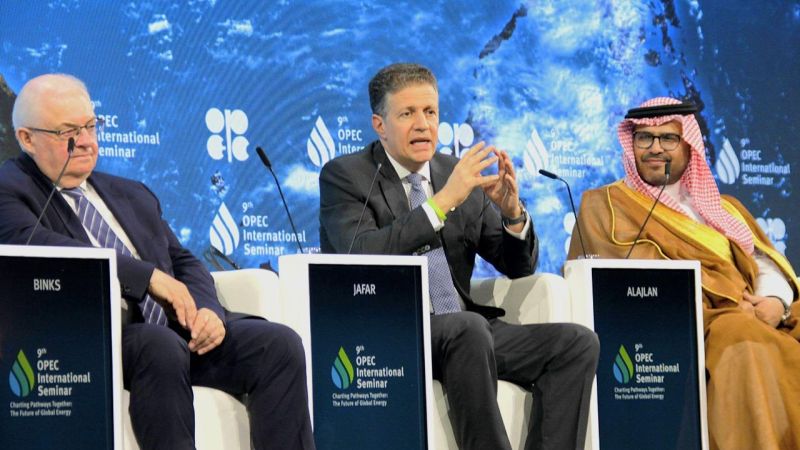Majid Jafar, CEO of Crescent Petroleum, has called for $4.3 trillion in energy investments over the next five years to meet rising global demand for natural gas and reverse a decade of underinvestment. His remarks came during the opening session of the 9th OPEC International Seminar in Vienna, where global energy leaders gathered to chart a realistic path for the future of energy.
Jafar, who leads the Middle East’s oldest and largest private upstream oil and gas company, warned that “the era of renewables growing at the expense of other energy sources is over.” Instead, he advocated for an “and, and” strategy, where gas, oil, and renewables all expand together to meet rapidly increasing global energy needs.
“The world faces a massive energy challenge, with demand set to grow at the fastest pace in decades,” said Jafar, addressing a panel on policies and regulations for a just energy transition.
Addressing the Energy Gap in the Developing World
Jafar emphasised that developing nations will drive most of the future demand, due to rapid population growth, urbanisation, and rising demand for air conditioning. He highlighted that 1.2 billion people still lack access to reliable electricity—a figure that has worsened in recent years.
He argued that developing countries must be empowered to use their own indigenous natural gas resources, not only to meet demand but also to reduce emissions by displacing dirtier fuels like coal.
“The ‘energy trap’ in developing countries leads to more coal burning, undermining both climate and development goals,” Jafar said.
AI and Data Centres to Exponentially Raise Demand
Global energy demand is also being driven by the rise of AI and digitalisation, particularly in the West. Jafar noted that by 2030, power consumption from data centres could match Japan’s total electricity demand, prompting a need for $720 billion in new global grid investments.
“Reliable, affordable natural gas is a fundamental pillar for a just and equitable energy system,” he said, stressing that switching global coal power to gas alone could reduce global emissions by 15%, significantly more than the cumulative impact of renewable investments to date.
Rising Demand and Natural Gas Growth
According to the International Energy Agency, global energy demand rose by 2.2% in 2024—well above the past decade’s average—while electric power use surged 4.3%. Natural gas saw the highest growth among hydrocarbons, rising by 115 billion cubic metres, or 2.7%, far above the ten-year average.
A Forum for Global Energy Dialogue
Held at Vienna’s historic Hofburg Palace, the OPEC seminar brought together nearly 1,000 senior energy leaders, including ministers from OPEC nations, executives from major oil and gas companies, and policy influencers. The two-day event focuses on key themes such as energy security, sustainability, low-carbon technologies, energy poverty, and investment.
As the global energy landscape evolves, leaders like Jafar are pushing for a balanced and pragmatic path forward—one where fossil fuels and renewables grow together to power a rapidly changing world.

